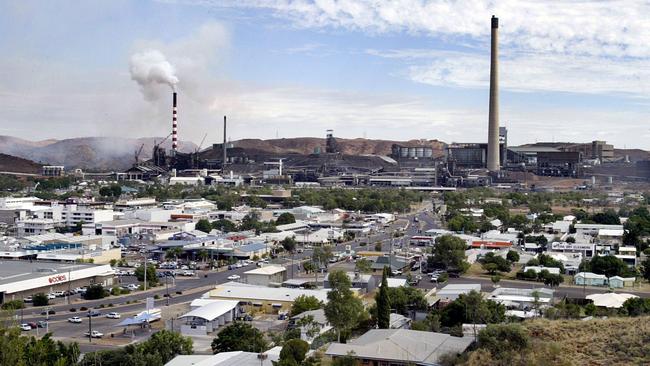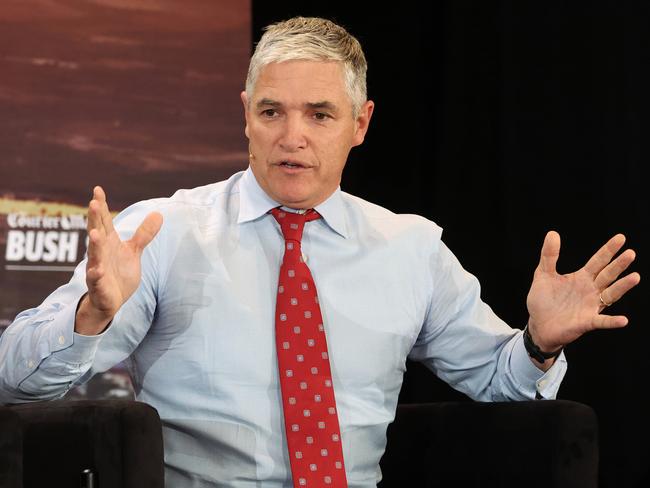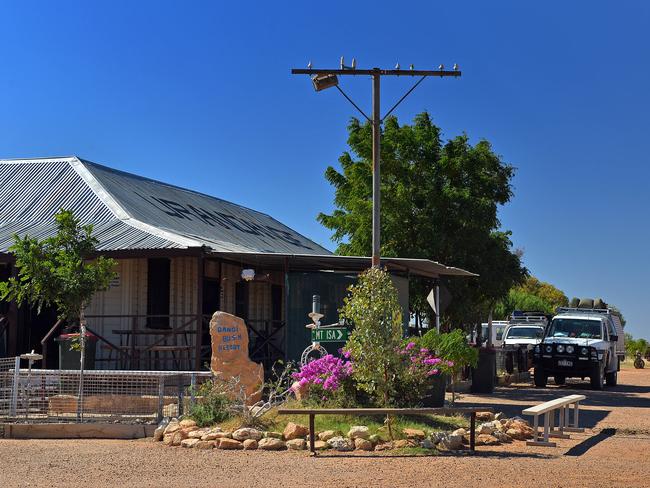Opinion: Death of town the latest sad chapter in decline of ‘the bush’
A Queensland town ceased to exist this year when its last business, the pub, closed down. It is a sign of things to come, says Robbie Katter.

Opinion
Don't miss out on the headlines from Opinion. Followed categories will be added to My News.
Last week’s Bush Summit left me reflecting on how the phrase “the bush” used to be synonymous with a land of opportunity – a place where you could move from coastal areas, work hard, and make a life you otherwise couldn’t on the coast and in the cities.
Instead, today, rather than thriving with enterprise and pioneers, the bush is fighting for survival. The projected population for my electorate of Traeger is -0.9 per cent.
One of the best contributions made at the Bush Summit was from mining magnate Gina Rinehart, who shot from the hip and in particular zeroed in on our need for special economic zones.
While it is good to be positive and talk of growth opportunities provided by the likes of CopperString, patting ourselves on the back doesn’t help fight the tide of continual population decline across the bush – only further exacerbating the housing crisis we hear about in our coastal cities.
In order to stop the bush decline it is best to ask what the landscape was like when these towns were growing.
The answer is an economic environment, whether by design or circumstance, that promoted opportunity for people that wasn’t available on the coast.
One of my heroes is Sir Leo Hielscher – he epitomises the “just get it done” attitude. It was at the height of his influence, with the building of vital infrastructure such as rail lines to minerals provinces and not taking no for an answer that the bush most recently really shone.
I think of the way a bush transfer used to be required for promotion through the government, the small business opportunity of buying a convenience store in a small town, buying a small cattle station and developing it, and the high-paying jobs in the mines.
The bush used to hold boundless opportunity. But one by one these opportunities have been removed through government policy and blockages.
Miners can now live wherever they want and fly in and out, as there is no obligation to base anything more than 1 per cent of the workforce in any given town.
Opportunities for small business have also declined under policies such as seven-day trading hours, giving larger-scale operators more advantage and pushing people out.

The agricultural industry is also filled with increasing adversity in so many ways, deterring new participants.
What we would like to hear from next year’s Bush Summit is a discussion of how we can transform water policy to facilitate building of water storages in at least some of our giant northern rivers to facilitate economic growth.
We would want to hear that the first home buyers grant would be extended to existing homes to activate so many of the under-utilised homes in our small towns.
We would like to hear of amendments to our one size fits all vegetation management policy that fails to recognise the Gulf and Cape are 98 per cent remnant forest – meaning undeveloped – yet still have all the same restrictions as the overly developed Brisbane or Lockyer Valley down south.
There should also be discussion about how to collaborate with the mining industry to incentivise more permanent local workforce to stop the bleeding in towns.
Furthermore, the conversation could be extended to government departments who appear to engage in FIFO now as much as the mining industry.
There may be $650b worth of minerals in the ground in the North West Minerals Province and an existing $5b agricultural industry in North Queensland, but this doesn’t mean it will magically be activated.
The small town of Urandangi ceased to exist this year with the last business – the pub – closing. I fear that Urandangi is a sign of things to come, if we continue to be hamstrung, held back, and denied the opportunity to thrive.
The future of “the bush” will require a willingness to adopt bold new policy settings and commit real investment from government – not surface-level band-aids on bullet wounds, focused on where the electoral mass currently is.
This is what our other political leaders need to be challenged with in any future “Bush” Summit – not coming up north to tell us what we need, and how they intend on doing it.
Robbie Katter is leader of Katter’s Australian Party



